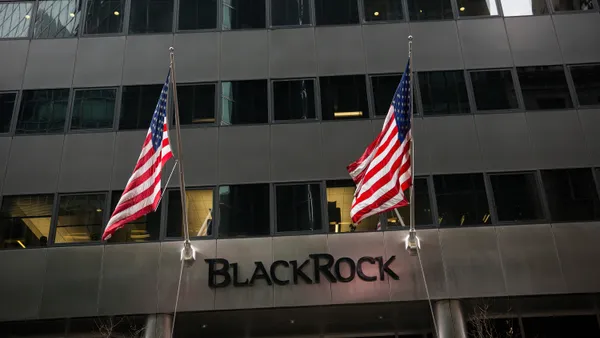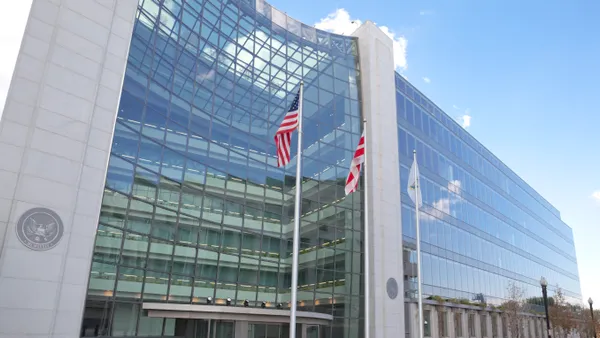Dive Brief:
- The Science Based Targets initiative announced Tuesday it has tapped David Kennedy, a partner at Ernst & Young for corporate sustainability, to be its next CEO as the organization prepares to validate a wider range of global corporations’ net-zero targets.
- Kennedy will assume the chief executive role in the second financial quarter of the year, with the exact date to be determined later once an agreement has been reached with EY, according to the press release.
- SBTi Chair Francesco Starace called Kennedy “a true pioneer with unrivalled qualifications” in the Jan. 7 release. He said the board unanimously approved the nomination committee’s proposal to hire Kennedy, which SBTi said came after “an extensive, competitive global recruitment process.”
Dive Insight:
Starace said the board has confidence that Kennedy “will help the SBTi’s continued global growth as the SBTi continues to build capacity to ensure that businesses have the confidence and practical tools to decarbonize.”
Kennedy has spent his career working with both the public and private sectors on climate change and sustainability, which includes serving as the founding chief executive of the United Kingdom’s Committee on Climate Change from 2007-14, according to his LinkedIn profile. The CCC worked on sector net-zero pathways, carbon budgets, targets, metrics and other national net-zero related policies with Kennedy at the helm.
Kennedy followed that role with stints as the director general of economic development for the UK’s Department of International Development and director general of food, biosecurity and trade at the Department of Environment, Food and Rural Affairs before joining EY in 2023, according to his LinkedIn.
SBTi’s newly appointed CEO said in Tuesday’s release that he admires the impact the climate standard setter has had and is “delighted” to take the role.
“I am excited at the prospect of working with the team and partners to advance the mission of the SBTi and deliver even more change at scale, supporting business to make its contribution to the global climate objective in the next crucial period,” Kennedy said.
At SBTi, Kennedy will be responsible for overseeing an influx of companies seeking the organization’s validation for their net-zero targets, as well as continued development of an update to its Corporate Net-Zero Standard and other sector target-setting guidelines.
Corporations representing nearly 40% of the global market cap reported having either validated targets or a commitment to set SBTi-validated targets in 2023, the organization reported last year. Last year, the organization tightened its guidelines for financial institutions setting net-zero targets, and the Corporate Net-Zero Standard is currently in the consultation stage.
Kennedy will take over the role from interim CEO Sue Jenny Ehr, who has held that title since former SBTi CEO Luiz Fernando do Amaral stepped down for personal reasons last July. Last spring, SBTi signaled a willingness to allow for expanded use of carbon credits, before walking the announcement back in the wake of staff opposition.
SBTi research released in July later found “clear risks” to allowing corporations to use carbon credits to offset emissions, and instead gave other recommendations for how carbon credits could be used to mitigate value chain emissions.
Starace thanked Jenny Ehr for her work as interim CEO and said she was a “steady pair of hands” in the role. Her leadership “during this moment of change and transition” was also lauded by World Wildlife Fund CEO Carter Roberts in a statement Tuesday. Roberts said Kennedy will be responsible for leading SBTi through a “new era of corporate climate action.”
“While the last several years have revealed the real challenges of implementation, science makes clear that weakening our resolve only accelerates both climate impacts and nature loss,” Carter said. “As we approach 2030, it’s time to maintain ambition and focus on emissions reductions across value chains, high-integrity carbon markets, and policy frameworks that support lasting change.”












